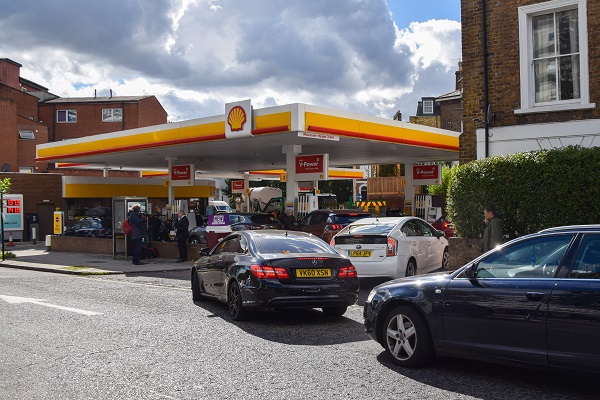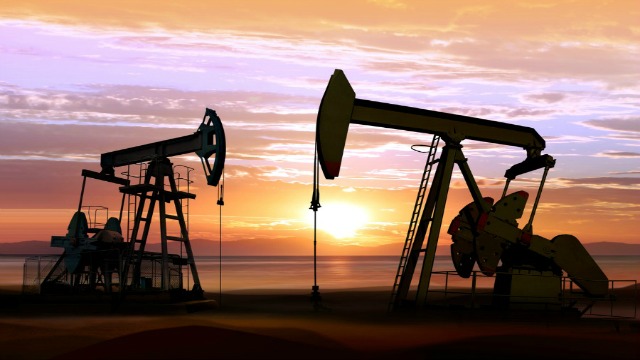Five things investors must know about Britain’s energy crisis
28th September 2021 14:57
by Graeme Evans from interactive investor
Our investment expert outlines some of the key issues the energy shortage is creating for investors to wrestle with.

It's a perfect storm in the UK energy sector, with sharply higher oil and gas prices now followed by empty petrol filling stations due to driver shortages. As Brent crude rises above $80 a barrel for the first time in three years, what are the consequences for UK investors?
1. Fossil fuels back in fashion
Despite their shift towards lower carbon activities, recent events show just how much fossil fuels continue to drive the valuations of London's big oil giants.
BP (LSE:BP.) shares are up 8% in the past week and by 14% since the end of August, while Royal Dutch Shell (LSE:RDSB) shares have made similar inroads to stand at their highest level in the pandemic.
Shell has said it aims to become carbon neutral by 2050 through investments in renewable energy and carbon offsetting technology, but it has also made it clear that it will need to remain dependent on crude in order to finance this transition.
But with Brent crude futures now above $80 a barrel and Goldman Sachs forecasting an end-of-year peak of $90, this means the prospect of more big returns of cash for shareholders.
Escalating energy shortages in China have been blamed for the higher oil prices, along with the amount of time it is taking for Gulf of Mexico production to come back online after damage from recent hurricanes. The high price of natural gas has also driven the buying of oil.
The power shortages in several Chinese provinces, which have reportedly halted production at factories supplying Apple Inc (NASDAQ:AAPL) and Tesla Inc (NASDAQ:TSLA), are driving coal prices to record levels.
This comes just as mining giants anxious to boost their climate credentials have been downsizing their exposure. Glencore (LSE:GLEN) is one stock still with significant interests, with about 85% of its production exported to countries where coal continues to play a leading role in power generation given its reliability and affordability.
Such returns won't sit easily with climate-conscious investors, but Deutsche Bank believes the company's commitment to steadily depleting the coal assets by 50% by 2035 and to zero by 2050 should resonate with those seeking action on climate change.
2. Natural gas surge poses inflation headache
Deutsche Bank has reported that UK natural gas futures rose 8.2% yesterday to £190/therm, exceeding the previous closing peak set a week earlier.
Depleted storage levels, limited LNG flows and Gazprom's apparent reluctance or inability to increase flows have all been cited as reasons for the quadrupling in European spot gas prices since the start of the year.
Worryingly, Bank of America notes that European and Russian gas storage levels are still below historical levels just two weeks before the start of the heating season.
Gazprom has often been accused of withholding supplies from European markets, but the bank's research finds that its production is actually close to a 10-year peak. Supplying additional volumes is hampered by the storage issues, an accident at a gas processing plant as well as the geographic shifts of production over the past decade.
The pressure on prices has been made worse by Asia buyers competing with Europe for supplies. The worry for investors is that inflationary pressures, which are being seen in higher petrol prices and rising household fuel bills, could force central bankers into earlier than expected hikes in interest rates.
Jerome Powell has warned Congress that the Federal Reserve might need to act if inflation becomes more persistent than anticipated, while comments from Bank of England governor Andrew Bailey have this week fuelled expectations for a rates rise early next year.
US bond yields have risen steadily over the past few sessions, hitting three month highs to diminish the appeal of tech shares whose valuations are built on future strong cash flows.
3. Trouble on the forecourt
The surge in the price of Brent crude and impact of panic buying caused by a shortage of petrol delivery drivers means that fuel prices are now at their highest level in eight years, with the RAC reporting an average 136.59p for a litre of unleaded on Sunday.
Up to 90% of forecourts at some petrol retailers were out of fuel at one point on Monday, leading to a potential economic shock as workers struggle to go about doing their jobs.
This inability to get fuel means a return to working from home for many, dealing a blow to retail and leisure chains just as they are attempting to rebuild after the pandemic. A quick return to normality is essential if the recent impressive momentum reported by the likes of Mitchells & Butlers (LSE:MAB) or bowling chain Ten Entertainment Group (LSE:TEG) is not to be lost.
- Visit the ii Knowledge Centre for a wide range of investor education content
- ii Super 60 investments: quality options for your portfolio, rigorously selected by our impartial experts
Even companies whose fortunes have soared in lockdowns are finding life tougher. Just Eat (LSE:JET) told customers that fuel issues and the traffic delays this is causing may impact delivery times on orders over the next few days. Pressure on tech valuations - more than these local logistics issues - were to blame today as Just Eat Takeaway and Deliveroo (LSE:ROO) shares both fell more than 2%.
Halfords Group (LSE:HFD) shares, meanwhile, have held firm in the past week as it reported a 23% jump in bike sales over the weekend and the doubling in orders for electric bikes.
4. Centrica benefits from energy upheaval
The surge in wholesale gas prices and constraints of Ofgem's price cap have triggered a shake-out in the energy retail market, forcing several suppliers out of business.
Their demise has been beneficial for British Gas owner Centrica (LSE:CNA), which looks poised to rebuild market share as it has now taken on four companies this year as part of Ofgem's Supplier of Last Resort process. The most recent was People's Energy, which served around 350,000 domestic customers and some 500 business customers.

Centrica has lobbied against Ofgem's price cap over several years but is now in favour of the regulation after chief executive Chris O'Shea told The Times last week that it has helped the consumer and should stay in place.
The surprise u-turn came shortly after O'Shea had reassured investors by saying his company is in a “robust financial position” and well hedged for the coming winter.
Investors are betting that Centrica will emerge from the crisis in a stronger position, with its FTSE 250-listed shares up 7% in the past month and 1% higher at 55.8p during today's lacklustre session. They were 85p prior to the pandemic and above 200p in 2016.
Its market capitalisation of about £3.3 billion matches the price tag placed on younger rival Octopus Energy yesterday after it raised $600 million from Al Gore's investment fund. Octopus has also just taken on 580,000 Avro Energy customers.
Good Energy Group (LSE:GOOD), meanwhile, continues to fight takeover interest from Ecotricity, which recently increased its offer to 400p a share from 340p tabled previously. Dale Vince's company said last Friday that it wanted to bring the process to a conclusion as soon as possible in light of current trading conditions, meaning a new deadline for acceptances of 8 October.
- Your vote counts: Babcock, Moonpig, AO World, Novacyt, Diageo
- Take control of your retirement planning with our award-winning, low-cost Self-Invested Personal Pension (SIPP)
Good Energy shares today fell 7.5p to 302.5p. Its chairman Will Whitehorn continues to back an independent future for the AIM-listed company, which lifted profits in the first half of the year.
He said recently: "Good Energy is profitable, with a clear purpose and strategy for digitising services, and a subsidiary in Zap-Map that is a digital leader in the fast growing electric vehicle sector.”
5. Lack of energy at Moneysupermarket
Ofgem's new price cap comes into effect next month, but the recent surge in wholesale gas costs already means the higher level won't be enough to persuade surviving energy suppliers to take on new customers outside those doing so under the last resort scheme.
That's a blow for Moneysupermarket.com (LSE:MONY), which generates about 15% of forecast 2021 revenues from energy switching and whose shares have fallen 17% in the past month to 210.8p.
High-flying FTSE 250-listed publisher Future (LSE:FUTR) is also impacted after recently moving into the price comparison sector with the acquisition of GoCompare. Its shares are down 7% to 3,576p in the past month.
Peel Hunt reduced its forecasts on Moneysupermarket by 14% last week but still has an “add” recommendation and target price of 310p.
The broker believes that the current dislocation in the energy market could galvanise a previously unmotivated consumer to manage their energy costs more actively to the long term benefit of price comparison websites.
These articles are provided for information purposes only. Occasionally, an opinion about whether to buy or sell a specific investment may be provided by third parties. The content is not intended to be a personal recommendation to buy or sell any financial instrument or product, or to adopt any investment strategy as it is not provided based on an assessment of your investing knowledge and experience, your financial situation or your investment objectives. The value of your investments, and the income derived from them, may go down as well as up. You may not get back all the money that you invest. The investments referred to in this article may not be suitable for all investors, and if in doubt, an investor should seek advice from a qualified investment adviser.
Full performance can be found on the company or index summary page on the interactive investor website. Simply click on the company's or index name highlighted in the article.